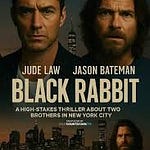Thank you
, , and many others for tuning into my live video with !Here is where we pull what I view to be the “three pillars” of mature, virtuous character meant in the quote of Stoic Philosopher, Epictetus:
“Character is Destiny.”
In fact, if you have any power at all over your future outcome, the “happy ending of your story of life,” it’s developing maturity and virtue of character.
The three pillars we cover in our Character Psychology Course at courses.romanticdynamics.com are:
Mindful self-reflection
Personal Boundaries
and the Wisdom of Mature Character (hint: only this 3rd one is what we all call, “Morality,” or “being a good person…”)
However, something higher than just the third pillar (Morality), is overall mature character virtue that needs all three pillars.
For access to our free versions of courses as well as to enroll in the full courses, not to mention Romantipedia.com, as long as you are a full member, become a Monthly Paid Member, here:
SHOW NOTES:
This conversation delves into the intricate relationship between morality, character maturity, and narcissism. The speakers explore how personality traits influence moral decision-making, the importance of boundaries, and the role of intuition and ethics in making wise choices. They also discuss the social dynamics of gossip and reputation, emphasizing the need for self-reflection and mindfulness in personal growth. The discussion culminates in the idea that morality is a function of character, which can be developed over time, contrasting it with the static nature of personality traits.
The discussion features Dr. Paul and Jeremy Fox, who engage in a conversation about the concept of morality and its connection to character maturity. Dr. Paul explains that morality involves decision-making and the ability to distinguish between right and wrong. He introduces the idea that morality can be one of the three fundamental pillars of character maturity.
Dr. Paul highlights a critical point regarding good moral individuals who may struggle with boundaries in various areas of their lives, such as finances, relationships, and friendships. For instance, a person may be morally good but may overextend themselves by constantly helping friends, leading to personal exhaustion.
He also touches on the concept of mindfulness—referred to as “theory of mind” or “observing ego”—and how a lack of mindfulness can affect a morally good person’s decision-making and experiences. These individuals may be good at heart but frequently find themselves in difficult situations due to their insufficient attention to their surroundings or the dynamics in their relationships.
The conversation delves deeper into the nuances of self-perception, discussing traits like conscientiousness, openness, and agreeableness. Both speakers agree that one can be morally good and make the right choices, but personal traits and situational awareness can play a significant role in how one navigates relationships and life’s challenges.
Overall, the dialogue emphasizes the complexities of morality, character maturity, and the importance of personal boundaries and mindfulness in leading a balanced life.
Takeaways
Morality is fundamentally about decision-making.
Narcissism can be viewed as a developmental arrest.
Character is distinct from personality; it can be developed.
Good moral intentions do not guarantee good outcomes.
Intuition plays a critical role in decision-making.
Boundaries are essential for healthy relationships.
Gossip serves as a form of social aggression.
Wisdom involves learning from past decisions.
The observing ego aids in self-reflection and mindfulness.
Ethics and intuition are both necessary for sound decision-making.
Titles
The Intersection of Morality and Character
Understanding Narcissism and Maturity
Sound bites
“Character is destiny.”
“Gossip is a form of social aggression.”
“Morality is about decision-making.”
Chapters
00:00 Exploring Morality and Character Maturity
08:09 Narcissism vs. Character Maturity
15:32 The Evolution of Moral Instruction
22:38 Personality vs. Character: Understanding the Difference
28:38 The Role of Intuition in Decision-Making
35:03 Ethics, Intuition, and Decision-Making
47:17 Navigating Past Trauma and Intuition
50:34 The Role of PTSD in Decision Making
53:07 Defining Wisdom in Decision-Making
55:30 Learning from Mistakes and Developing Intuition
58:22 The Complexity of Human Behavior and Decision-Making
01:01:40 Understanding Morality and Character
01:03:30 The Nash Equilibrium and Decision-Making
01:05:22 Discernment in Interpersonal Relationships
01:09:24 The Power of Language in Psychology
01:19:46 Morality as an Antidote to Narcissism












